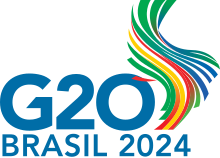President Bola Tinubu is set to embark on a significant diplomatic mission as he prepares to join world leaders at the 19th G20 Leaders’ Summit in Rio de Janeiro, Brazil. The Nigerian president’s participation in this prestigious gathering comes at the personal invitation of Brazilian President Luiz Inacio Lula da Silva, who currently holds the presidency of the G20, marking another milestone in Nigeria’s growing influence in global economic discussions.
The two-day summit, scheduled for November 18-19, will convene leaders from the world’s twenty largest economies, along with representatives from the European Union, African Union, and major multilateral financial institutions. Under the thematic banner “Building a Just World and a Sustainable Planet,” the summit promises to address pressing global challenges that align closely with Nigeria’s national interests and international advocacy positions.
This high-level gathering will focus on three critical areas that resonate deeply with Nigeria’s domestic and international priorities: the global fight against hunger and poverty, reform of international governance institutions, and the pursuit of sustainable development and energy transition. These topics hold particular significance for Nigeria, which has consistently championed the cause of institutional reform in global governance structures.
Nigeria’s participation in this summit carries special weight given the country’s longstanding advocacy for reform of global governing institutions. The nation has repeatedly presented its credentials as a strong contender for a permanent seat on the United Nations Security Council, making this G20 platform an opportune moment to advance these aspirations through direct engagement with global decision-makers.
President Tinubu’s delegation reflects the strategic importance Nigeria places on this summit. Accompanying him are key government officials including Foreign Affairs Minister Ambassador Yusuf Tuggar, Minister of Livestock Development Idi Mukhtar Maiha, and Minister of Art, Tourism, Culture and Creativity Hannatu Musawa. The delegation also includes Dr. Aliyu Sabi Abdullahi, Minister of State for Agriculture and Food Security, and Ambassador Mohammed Mohammed, Director General of the National Intelligence Agency.
The composition of this high-powered delegation suggests that Nigeria intends to leverage the summit not only for diplomatic engagement but also for advancing specific sectoral interests. The presence of ministers responsible for livestock development, agriculture, and tourism indicates potential focus areas for bilateral discussions on the summit’s sidelines.
These bilateral meetings, which President Tinubu is expected to conduct alongside the main summit activities, could prove crucial for advancing Nigeria’s socio-economic reform agenda. They present opportunities to attract international support and investment for key sectors of the Nigerian economy, particularly in areas aligned with the summit’s themes of sustainability and development.
The timing of this summit is particularly significant as it comes when Nigeria is implementing ambitious economic reforms and seeking international partnerships to support its development goals. The G20 platform provides an invaluable opportunity for Nigeria to showcase its reform initiatives and engage with potential partners in areas such as energy transition, poverty alleviation, and institutional development.
The summit’s focus on sustainable development and energy transition aligns perfectly with Nigeria’s own challenges and aspirations in these areas. As Africa’s largest economy grapples with the complexities of energy access and environmental sustainability, the insights and partnerships potentially gained from this global gathering could prove invaluable for shaping domestic policy directions.
The inclusion of poverty alleviation and hunger in the summit’s agenda also resonates strongly with Nigeria’s domestic priorities, particularly as the country works to address these challenges within its own borders. The opportunity to engage with global leaders on these issues could yield valuable insights and potential collaborative solutions.
As President Tinubu prepares to depart Abuja for this crucial international engagement, the expectations are high for meaningful outcomes that could benefit Nigeria’s development agenda. The summit not only offers a platform for Nigeria to contribute to global discussions on critical issues but also presents opportunities for building strategic partnerships that could accelerate the country’s socio-economic development.
The president’s participation in this G20 Summit represents another step in Nigeria’s ongoing effort to secure its place among the world’s leading economies while advocating for a more equitable global governance system. The outcomes of this high-level engagement could have far-reaching implications for Nigeria’s international relations and domestic development agenda.



